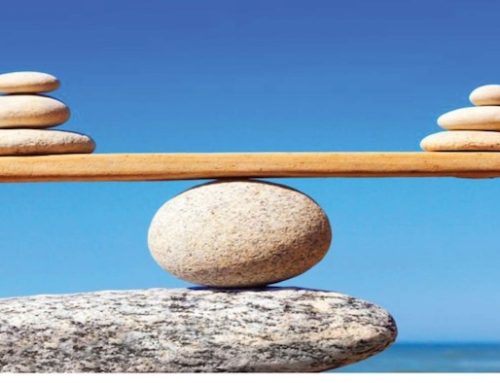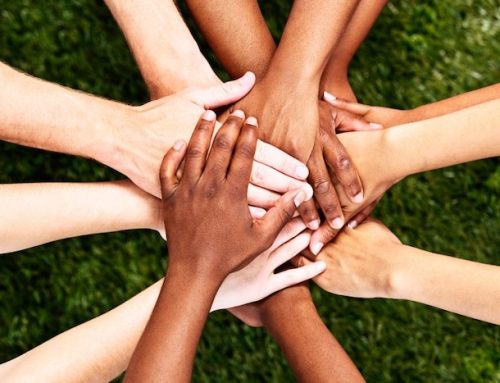There is one thing the vast majority of Americans agree on in an otherwise deeply divided nation: we all wish this election would end sooner rather than later. Politicians have discarded the art of persuasion for crass tools of manipulation that strain our democratic sensibilities to the breaking point. The new American machine of political outrage has turned discourse into a bloodsport while the now-banal deployment of deceit has produced a leaden blanket of exhaustion that smothers our better spirits.
Notwithstanding vote counting shenanigans that could leave the results in question for days and weeks to come, at least the ads designed to scare us into voting for one candidate or against another will end on Tuesday. The streaming will, hopefully, quit screaming. That said, regardless of who wins, or appears to win on November 5th, Trump and his team of sycophants will work to assure chaos through at least early January. Chaos is, after all, the fundamental modus operandi of the charlatan; it keeps the truth always just beyond our grasp, and the fraudster out of chains.
Pollsters have been pulling their hair out trying to predict how we will vote. Millions of dollars have been spent on research and consultants to design messages to move us towards one candidate or another. In an imperfectly divided America few, if any, understand Americans because traditional identifiers like race, religion, party affiliation, age, etc. are no longer explanatory, nor predictive.
While educational achievement remains a somewhat reliable predictor across all age groups, gender is the only significant marker of voting preference, principally among the youngest voters. When you combine education and gender there is an astounding 43 point spread between voters for Harris and Trump; college educated women prefer Harris by 27 points while non-college men prefer Trump by 16 points. The age-old dictum still applies: “It’s all about turnout.” We should also expect split-ticket voting—where people vote for candidates without regard for party loyalty—to reach an all-time high this election. The impact of the independent voter will continue to rise.
Eventually, the candidates and their donors will realize the mistakes they have made. Frankly, nearly all have run strategically inept campaigns. Only one candidate, Donald Trump, got it more right than wrong, and he only got it half right. Despite his outrageous and despicable character, he has had his finger on the emotional pulse of Americans better than Biden or Harris. Biden never understood it while Harris had it right initially, then she got it all wrong. Emotions—not facts—drive feelings, and in 2024 we will vote based on our feelings. Regrettably, Trump understands this much better than Harris.
Allow me to explain.
In America, we are nearing the end of the fourth period of crisis in our history. Trump may extend this period of crisis, but it will end eventually, consistent with the universal rule of impermanence. For the last several years we have been enveloped by a fog of various anxieties leaving many depressed. As a fog, it is difficult to recognize in real time as it creeps in, and once we can’t see well it becomes challenging to find a road out. The War on Terror, the Great Recession, the pandemic, climate change, and political dysfunction have all affected us in different, but negative ways.
In the process, the social, political, and economic fabric of our union has been severely compromised. If you are under thirty-five years of age, it is unlikely you even recall the relentless and optimistic spirit that defined America in the last half of the twentieth century unless you watched it in an old movie. Today, we are looking for a way out. It’s what humans do. At first, we cope, then survive, then (hopefully) prosper.
The new reality is that traditional demographic identifiers that pollsters use to slice and dice voter responses are no longer relevant; what moves us to vote has little to do with them. In an angst-addled state, we tend to suspend the rational for the emotional. Although when pressed by pollsters or friends to answer why we are voting one way or another, we can still muster a plaintive response like “economy’” or “immigration,” or “reproductive rights,” or “crime,” or something else. But the truth is we will vote based on who makes us feel better, or at least doesn’t make us feel worse. In a hyper-divided America, we no longer fall neatly into groups; we have become complex and highly individualized beings with our own specific tangle of desires and aversions.
The things that depress or inspire Americans are very different for each of us. Those who feel they are losing their position in American society—are being disenfranchised—may be white, black, Hispanic, Asian, male, female, straight, gay, old, or young. Those who feel the American Dream of self-determination is being threatened also include people of varied demographic backgrounds. Those who feel their personal security is at risk can be an old white man or a young trans woman. Those who feel their best years lie ahead of them can be the young Hispanic male graduate, or the recently divorced middle-aged woman. The tech-bro engaged in AI and quantum computing may feel he is going to change the world, while the septuagenarian woman engaged in teaching mindfulness to her cohorts at the assisted living facility may view her life as reaching its pinnacle of fulfillment. In 2024, our personal outlook has little to do with our respective demographic profiles; feelings are everything.
Three years ago, in November 2021, I wrote an essay called “MAFGA” which stands for Make Americans Feel Good Again. I argued that it was “a simple and powerfully persuasive proposition.” I railed against the use of shame and fear as tools of manipulation that are not only ineffective, they are injurious. I further argued that “lifting people up has always proven more powerful than putting them down,” in hopes that candidates in the 2022 and 2024 elections and other social and political movements would change their ways.
Then, last year and again this year I reminded those seeking public office of the great success of Ronald Reagan in 1980 and 1984 who, after another depressing period in America following the Viet Nam War, Watergate, super-high inflation, and the jeremiads of Jimmy Carter, simply offered Americans absolution while painting a bucolic picture of “Morning in America, Again.” Reagan’s absolution was, “You are not the problem, government is the problem.”
Harris initially had it right. At the Democrat convention and the immediate days that followed, she engaged in a MAFGA campaign. Not only did she aim at making Americans feel good about their lives, more fundamentally she was making Americans feel good about being Americans, again. It was about us, even as she introduced us to her own story. The Trump campaign was on its heels faced with a young optimistic new opponent. Trump, himself, slid into an apoplectic stupor. He had been erased from the headlines. Then, she took the bait.
She was goaded by her opponent and the media to get specific about policy after her mid-Summer meteoric rise in the polls following Biden’s abdication and the convention. She then relinquished her feel-good strategy and fell into the policy trap. Tax the billionaires! Everyone gets a down payment for an affordable home! Small businesses will get a tax break! And on. While it was certainly appropriate for her to articulate her policy proposals, she failed to connect them to the positive effects they would have on voter’s lives. She failed to answer the question, what does it mean to me?
Policies are features, and people don’t buy features, they buy benefits. Even a car salesperson understands the difference between features and benefits. Features are based in facts while benefits are based in meaning. How will this policy improve my life and my family’s future? How will it lift me up to make me feel proud of myself and my country? What does it mean to me? Features appeal to our rational state while benefits appeal to our emotional state. The latter will determine how we vote in this election. It is a distinction that makes a huge difference. One of my questions for Harris is, how can a campaign with a billion dollars not hire an advisor who understands this basic tenet of persuasion?
When her policy orientation caused her numbers to plateau, she shifted again, but in the wrong direction. She tried to out-fear the master of fear, Donald Trump. She ranted endlessly about how awful it would be if he were elected. It was as if she was channeling her inner Joe Biden. Consequently, she committed the cardinal sin of campaigning: she put her opponent in the spotlight at the expense of her own campaign objectives. She made herself look like she was losing, and people at the margin—the undecideds—are unlikely to cast their vote for someone they think may lose. It’s not the way they want to feel. To modify James Carville’s old maxim, in the election of 2024, it’s how you make people feel, stupid!
The Harris campaign even dispatched Barack and Michelle Obama to shame men into voting for her even though shame seldom works—especially with men. As the columnist Maureen Dowd pointed out, Trump appeals to men who feel emasculated, who see Trump as the “antidote to shrinking male primacy.” Trump pandered to enervated men while the Harris campaign shamed them. In effect, Trump invoked Reagan’s absolution: you are not the problem, Harris and the woke Dems are the problem. Which do you think would attract more voters—especially testosterone-loaded young men? Harris’s shame, or Trump’s absolution?
In short, Harris traded optimism and making Americans feel good again for mundane feature-based policies, fear-mongering, and shame. She abdicated the high road and cast herself as a struggling coming-from-behind candidate rather than the voice of a winner—of change and optimism—even while she was being supported by more than one billion dollars. Oops.
Meanwhile, in spite of his ugly disposition and complete lack of any semblance of policy credibility, Trump continued to do what he does best: tweak the fears—the emotional anxieties—of distressed Americans, especially men. In the late stages of crisis, those driven by anxiety outnumber those who are content. This, and Harris’s strategic mistakes, is why Trump could win—maybe even by a large electoral margin. Trump could never be optimistic—could never execute a MAFGA strategy—but he did engage with feelings even if they are our lesser feelings—our anxieties. He owns the market on fear and anger and he played on feelings much better than Harris down the stretch.
Obviously, I don’t know who will win any better than the pollsters, but I do understand how people will vote in 2024. It is both complicated and obvious. People don’t fit neatly into old categories and may never again. Welcome to our infinitely diverse world, pols and pollsters!
For years now at my blog, and in my 2020 book, Saving America in the Age of Deceit, I have characterized Trump as a wannabe fascist. Many suggested that I was guilty of hyperbole. It is now clear that if anything I should have dropped the adjective, “wannabe.” Even the venerable ninety-two-year-old historian, Robert Paxton, who first resisted the label for Trump, calling it a “toxic label” in 2017, believes Trumpism is fascism today drawing comparisons to his studies of how fascism swallowed France in the early 1940s.
Four more years of Trump will be devastating for our country and the world. If Trump gets his way on tax cuts and tariffs, and allows Elon Musk and the Project 25 bros to run wild destroying government agencies, it could produce an American economic tragedy that could rival the Great Depression; similar to what President Hoover and Treasury Secretary Mellon did that preceded the crash of 1929. Politically, what could happen may mirror the rise of fascist tyranny in the late 1930s that we were warned of by Sinclair Lewis in his 1935 dystopian novel, It Can’t Happen Here.
Alas, Harris had her shot. Had she stayed on the MAFGA path (where Trump could never compete), I expect she would have won in a landslide. Instead, she decided to try to compete on Trump’s platform of fear. It is as if Taco Bell, whose core competency is cheap tacos, decided to abandon tacos to compete with McDonalds in selling hamburgers and fries. I imagine the taco giant’s next decision would be made in bankruptcy court: chapter 7 (liquidation) or 11 (reorganization).
I do truly hope Harris eeks out a victory. I hold out hope for an upside surprise—that the pollsters have it wrong (as they most certainly will), but in her favor rather than his, this time.
Let me be clear, it is up to women—especially Gen Z women—who can pull it out for Harris. My late mother would be so pleased that her granddaughter, Corsica Steding, and her peers, might have the power to swing a presidential election. In 2010, President Obama penned a letter to my mother on her 87th birthday stating, in part, that “You have witnessed great milestones in our Nation’s history, and your life represents an important part of the American narrative. I hope you are filled with tremendous pride and joy.” At the time, not many 87-year-old white women supported Barack Obama, but my mother did. She had hoped a woman would become president in her lifetime, but was nearly as pleased when a black man did; she recognized his wisdom and grace as her own. My plea to women across the country this Sunday is that my mother’s narrative does not die on this coming Tuesday, and that my daughter can live the life my mother worked so hard for her to have.
Like many Americans in the center, I am not as much for Harris as I am against Trump. I struggle with several of her policy positions and her inability to answer questions clearly and succinctly, but for those of us for whom character is paramount and who care about the founding principles of our nation, it is an easy call. She has certainly won the dollar-donation polls, so perhaps that proves to be a better indicator. However, if Trump wins (as the bond market and gamblers at Polymarket and Predictit expect), I will certainly understand why.
I expect most of us will escape Trump’s tyrannical wrath, but we will all know some of his victims—some may even be friends and family. His tariff proposals alone will severely harm the American consumer (mostly middle class) and our economy will endure yet higher inflation and an exploding deficit—even economists at the very conservative American Enterprise Institute concur with this assessment. As for our democracy, as Harvard’s Steven Livitsky and Daniel Ziblatt have argued, our last pathway to save the republic may be “societal mobilization.” In sum, if Trump wins, the decline of the American empire that many international relations scholars suggest peaked in its power in 2001, will accelerate. And, it will have been our choice—our doing.
If there is any good news, it is that there is life after empire. Good people will still lead good lives. The pendulum will swing again from darkness to light as it did in the late 1940s. World order will be remade; as multipolar rather than unipolar. In the process, the United States will lose its stature as sole superpower. Perhaps the indomitable spirit of earlier Americans will be reborn in our next Americans. Our spine of character is being tested as it was during Crisis I: the American Revolution; Crisis II: the Civil War; and Crisis III: the Great Depression and World War II. So far, our character has stood the test of time.
Whatever the outcome of this election, hopefully we will shed the many bad behaviors we have accumulated over the last couple of decades and our narcissism will be replaced by a new order of personal responsibility founded in the stewardship of our communities and of our fragile environment. We may even begin to respect each other, again. Perhaps also set aside manipulation in favor of persuasion. I won’t hold my breath, but I will certainly use it to find a sense of calm.
Please don’t hold your breath either; breathe my friends, breathe.






